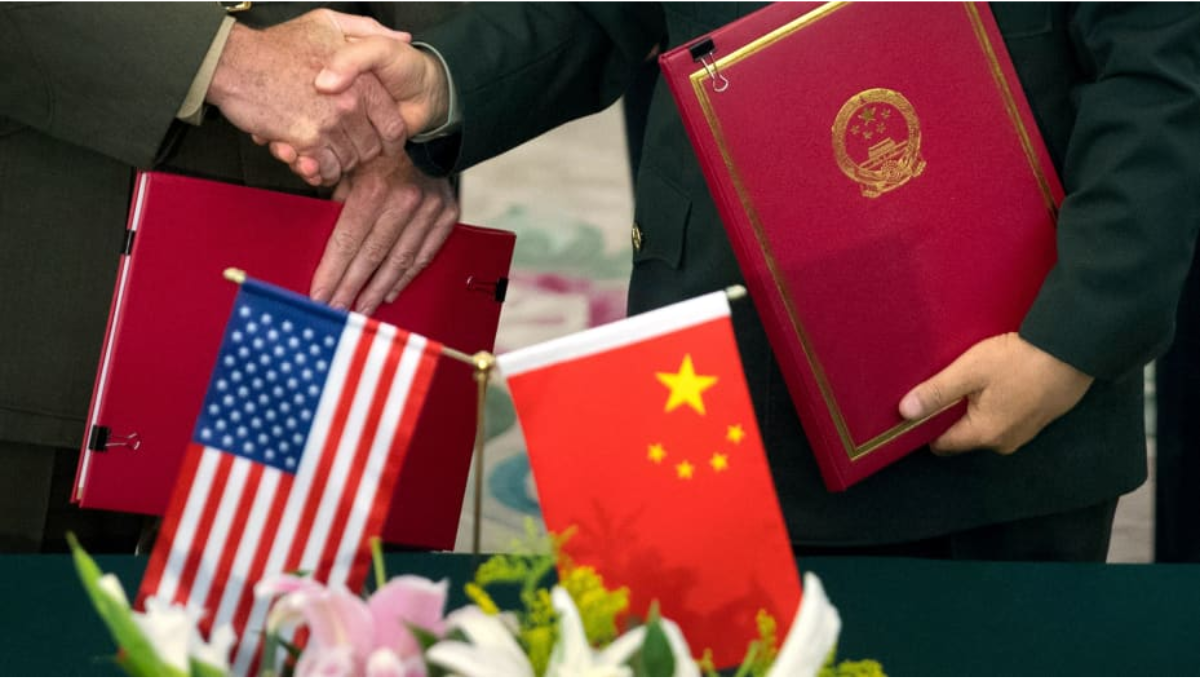In a significant development, the United States and China have held their first informal nuclear talks in five years. This meeting, held against the backdrop of escalating tensions over Taiwan, marks a critical step towards reestablishing dialogue between the world’s two largest economies. The resumption of these talks comes amid a backdrop of geopolitical rivalries, military posturing, and strategic recalibrations, highlighting the complex and multifaceted nature of US-China relations.
Backdrop of Tensions: The Taiwan Factor
The primary context for these renewed discussions is the rising tension over Taiwan. Both nations have ramped up their military activities around the Taiwan Strait, with the US conducting freedom of navigation operations and China increasing its military drills. Taiwan, a self-ruled island that China claims as its own, has become a flashpoint in US-China relations. The US supports Taiwan’s democratic government and has committed to its defense, while China views any foreign intervention as a violation of its sovereignty.
The Biden administration has reiterated its commitment to the One China policy, which acknowledges Beijing’s stance on Taiwan, but it has also strengthened support for Taiwan through arms sales and high-level visits. On the other hand, China has responded with aggressive rhetoric and military maneuvers, emphasizing its resolve to reunify Taiwan with the mainland, by force if necessary. This volatile situation underscores the urgent need for communication channels like the informal nuclear talks to prevent miscalculations and manage crises.
Resumption of Nuclear Dialogue
The informal nuclear talks, which took place in Vienna, are strategically and symbolically significant. They signal a cautious attempt by both nations to manage their strategic rivalry and address mutual concerns about nuclear capabilities and arms control. The discussions are expected to cover a broad range of topics, including the modernization of nuclear arsenals, deployment of missile systems, and strategic stability.
These talks are not formal negotiations but are crucial for laying the groundwork for more substantive future engagements. They reflect a mutual recognition that, despite deep-seated differences, dialogue is necessary to prevent an arms race and reduce the risk of nuclear conflict. The US and China have substantial nuclear arsenals and advancing missile technologies, making their communication on these issues vital for global security.
Potential Outcomes and Challenges
While the resumption of talks is a positive step, several challenges remain. Both countries have divergent views on many strategic issues, and mutual suspicion runs deep. The US has expressed concerns over China’s nuclear buildup, transparency, and strategic intentions, while China is wary of US missile defenses and alliances in the Asia-Pacific region.
One potential outcome of these talks could be the establishment of regular communication channels to enhance transparency and build confidence. Such mechanisms are essential to avoid misunderstandings and manage crises. However, achieving tangible progress on arms control and nuclear risk reduction will require significant diplomatic effort and political will from both sides.
Another challenge is the broader geopolitical context, including issues like trade disputes, human rights concerns, and cyber security, which complicate the US-China relationship. Addressing these multifaceted issues requires a holistic approach that goes beyond nuclear talks. It involves finding a balance between competition and cooperation in a rapidly changing global landscape.
Balancing Competition and Cooperation
The resumption of informal nuclear talks between the US and China is a hopeful sign in an otherwise tense bilateral relationship. It highlights the importance of dialogue and engagement in managing strategic competition and ensuring stability. While challenges persist, these talks provide a platform for both nations to explore areas of common interest, reduce the risk of conflict, and contribute to global security.
Moving forward, both countries will need to navigate their differences carefully and find ways to cooperate on shared challenges like nuclear proliferation, climate change, and pandemic response. The ability to balance competition with cooperation will be crucial in shaping the future of US-China relations and maintaining global peace and stability.
